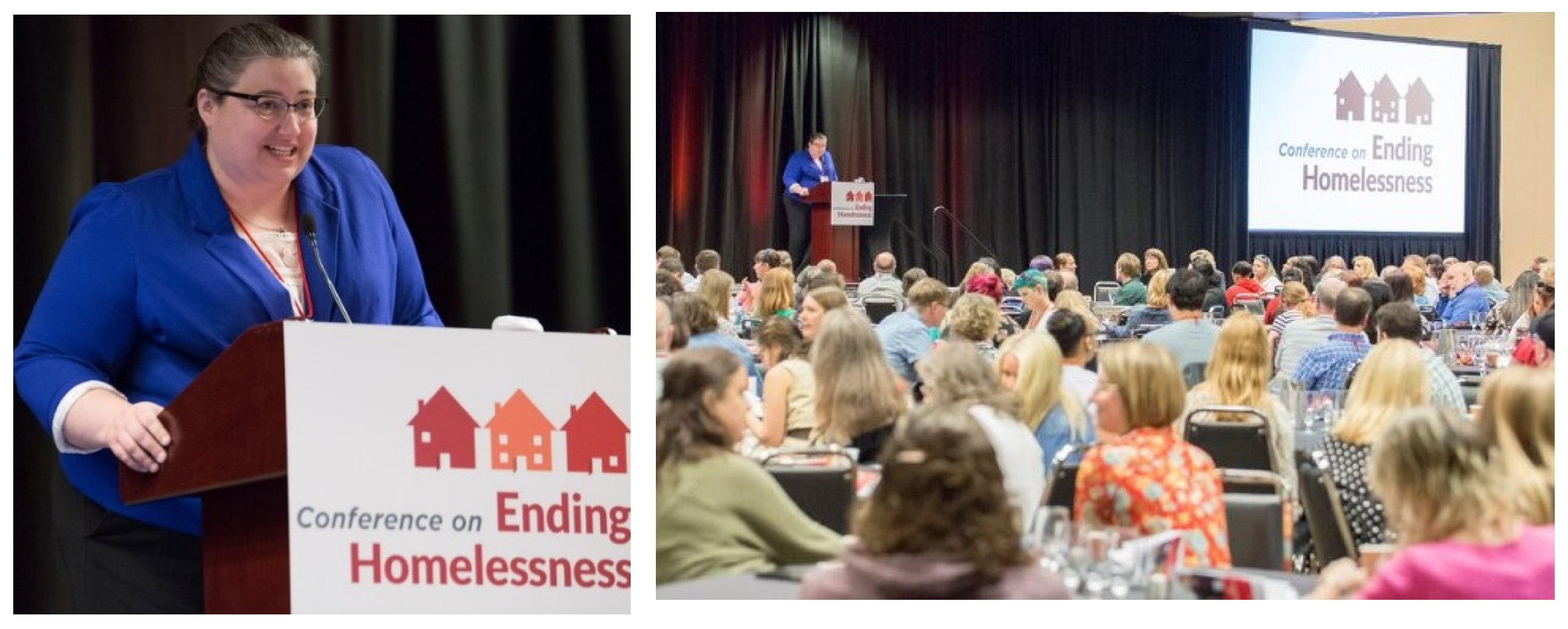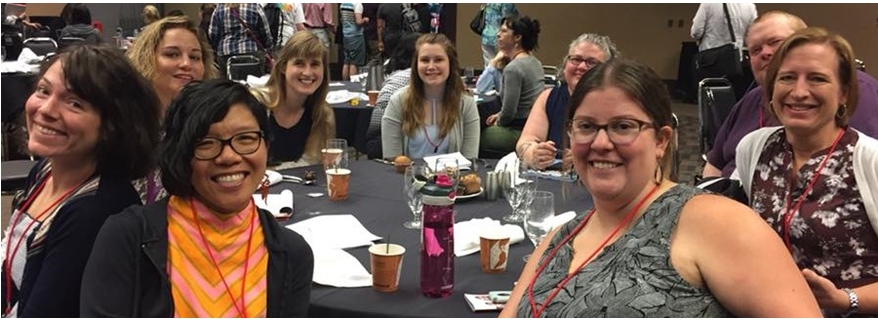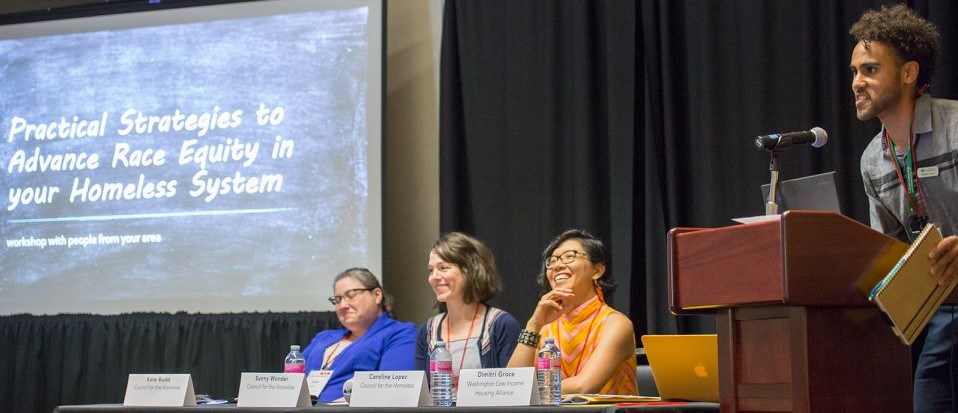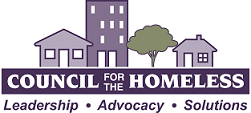By Charlene Welch, Council for the Homeless
Lessons Brought Home from WA State Conference on Ending Homelessness
Solutions to homelessness take passionate people and partners working together to move the multiple levers for effective change.

Kate Budd, CFTH executive director opened the WLIHA Conference in Tacoma with hundreds of allies for ending homelessness in Washington State. Photo Credit: (Photos Credit Alecmillerarts.com)
The Washington State Low Income Housing Alliance (WLIHA) hosts an annual conference where partners from across the state learn and share effective strategies for helping families, veterans, survivors of domestic violence, people who are chronically homeless, and more. CFTH staff attended the conference to lead sessions and learn from their peers in other communities.

CFTH and Evergreen Public Schools (EPS) staff at the the WLIHA conference. (From left: Caroline Lopez (CFTH), Sunny Wonder (CFTH), Shayleen Migneault (CFTH) Cassie William (EPS), Michelle Mitchell (EPS), Christi Lail (CFTH), Bill Judd (CFTH), Katie Greer (EPS) and Meaghan Curry (CFTH). Photo Credit: (Photos Credit Alecmillerarts.com)
Student Homelessness is a Catch-22
Meaghan Curry and Christi Lail work directly with students and teens in Clark County who are experiencing homelessness and do not have parents or family to help them. According to data presented by the Office of the School Superintendent of Public Instruction (OSPI):
• 42% of youth experiencing homelessness drop out of school
• 50% of youth experiencing homelessness say it is extremely difficult to stay in school with so many other concerns.
Having a safe and stable home clearly supports a student’s ability to succeed in school. However, it is a catch-22 for these young people. Student homelessness is the single largest factor contributing to the dropout rate, yet not graduating brings a much higher likelihood that a youth will remain homeless. Even so, other programs that are successfully housing homeless youth by matching them with support mentors were inspiring for our staff to hear about.
Sharing About Equity
Addressing homelessness through a lens of equity is a focus for CFTH. A panel of three CFTH staff members presented a workshop on advancing racial equity to over 100 people from around the state.

Kate Budd, Sunny Wonder, Caroline Lopez of CFTH and Dimitri Groce of WLIHA.
Caroline Lopez stated two key points to begin the workshop:
- We cannot end homelessness without addressing racism.
- More effort on the part of an individual will not always solve their homelessness.
Collaborating more closely with organizations that represent People of Color is a key first step in listening and understanding. “People of Color” is a term primarily used to describe any person who is not white and highlights the common thread of systemic racism. Workshop participants made lists of culturally responsive organizations throughout Washington they could contact after the conference. For more on this topic please see the Supporting Partnerships for Anti-Racist Communities.
What you can do
There is always more to learn about solutions to homelessness! We invite you to join CFTH and our partners around the state to ensure everyone in our community has a place to call home. Here are four ways you can be involved:
- Respond to the Homeless Action Plan Survey
- Subscribe to the CFTH e-News
- Attend our Making Home Possible luncheon on September 27, 2018. Click for details.
- Follow us on social media for other timely topics and events.

